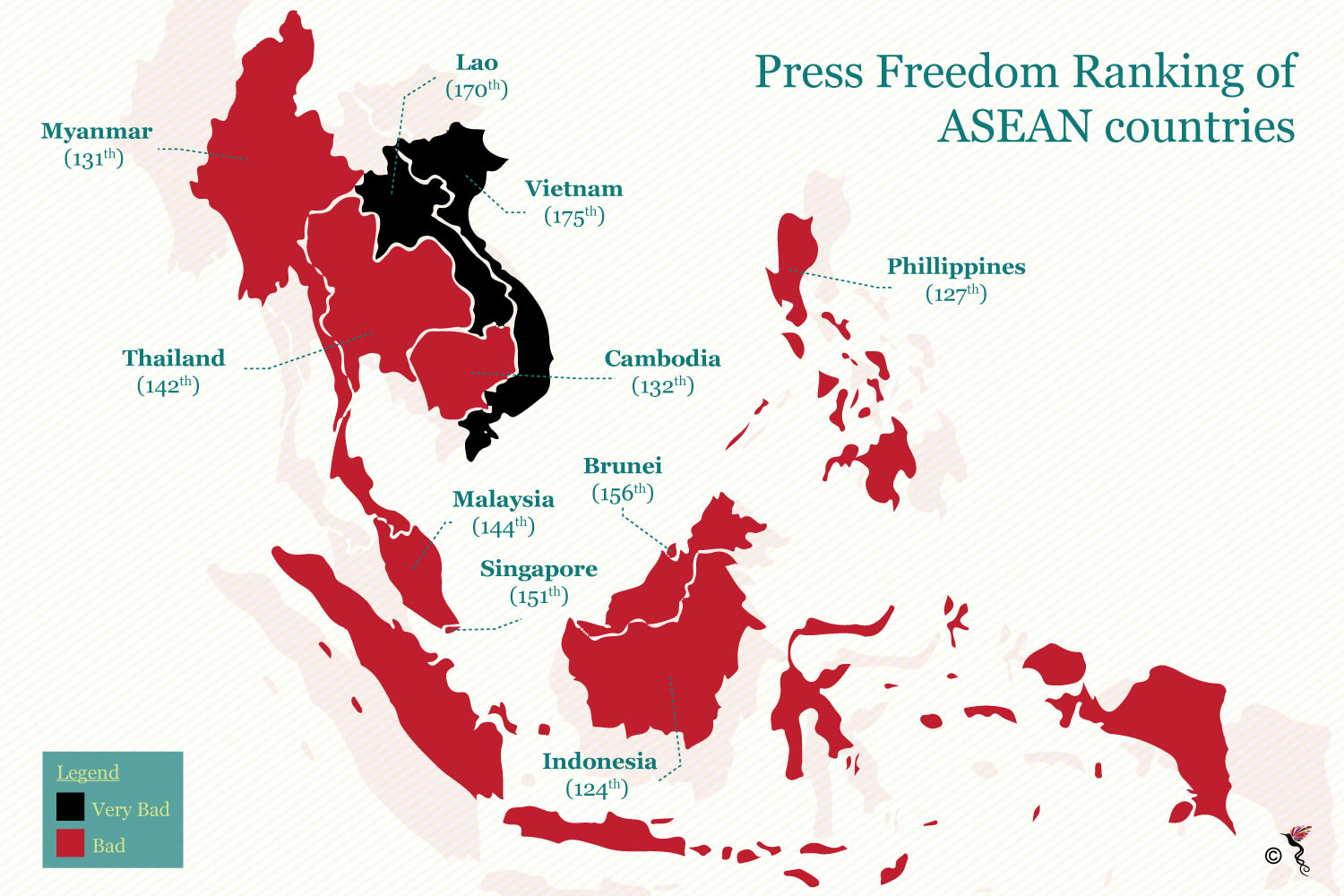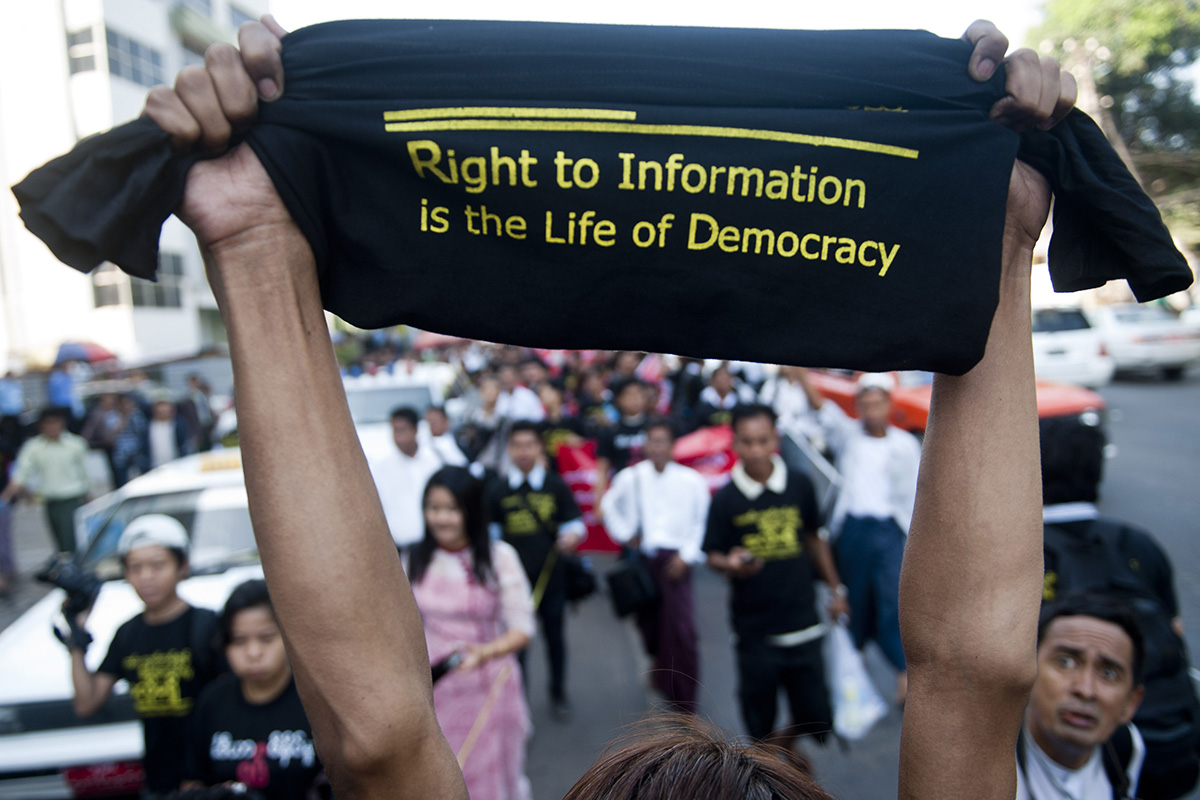The closure of various independent media outlets in Cambodia in the past month has garnered international attention as the Cambodian government received criticism from various media outlets, NGOs (non-governmental organisations), human rights councils and governments.
In a much publicised case, The Cambodia Daily – an independent bilingual newspaper – was forced to shut down after it was slapped with a 6.3 million dollars tax bill, with Cambodian Prime Minister Hun Sen telling the newspaper to pay up or leave. The newspaper’s final headline spelled out “Descent Into Outright Dictatorship” on Monday as Jodie DeJango, the last editor in the history of the daily, tweeted “It's a wrap.”
Fifteen other independent media outlets have also closed down recently due to the inability to follow licensing regulations and various registration requirements set by the Cambodian government – allegedly violating their contract with the Ministry of Information Cambodia. Radio Free Asia, Voice of Democracy and Voice of America – all sponsored by the US government – have been particularly affected by restricted access to broadcasting time. They were being implicated for not being registered with the tax department and for failing to report the sales of their airtime. The government also accused them of provoking a regime change.
Freedom of expression becomes truly questionable as the age of chaos descends upon Cambodia. The crackdowns on media outlets indicates that means of expression are heavily controlled by Hun Sen, who has been in power for the last 32 years.
The RSF’s (Reporters Without Borders) World Press Freedom Index now ranks Cambodia at 132nd out of 180 countries. According to the index, the current situation with regard to press freedom in Cambodia is red-zoned, which translates to “bad” freedom of press. Its ASEAN (Association of Southeast Asian Nations) counterparts Vietnam and Lao are black-zoned, which translates to “very bad” freedom of press. This shows that there is a pressing need to improve press freedom in ASEAN.

2017 World Press Freedom Index ranking for ASEAN countries, as compiled by the RSF (Reporters Without Borders).
At the same time, the APHR (ASEAN Parliamentarians for Human Rights) expressed their grave concerns over the Cambodian government’s continued efforts to crack down on independent media outlets. “This crackdown is a dramatic escalation of the government’s move against critical, independent voices and is deeply concerning for the fate of Cambodian democracy,” said APHR Chairperson Charles Santiago in a statement released by the organisation. The organisation went on to criticise the continuous attacks against Cambodia’s independent press indicating it as “a clear intent by the ruling party to curb freedom of expression ahead of the July 2018 national elections”. Philippine Congressman Tom Villarin, in the same APHR statement, said “Cambodians are losing an important lifeline to independent information, integral to the successful functioning of a democratic society.”
The OPCC (Overseas Press Club of Cambodia) also expressed its dismay over the sudden closure of The Cambodia Daily. “There are grave concerns for the media and political landscapes as the 2018 national election approaches,” the press statement read. OPCC opined that the closure of the daily that has been around for 24 years, has caused the country to lose a “beacon of free speech, champion of free expression and prolific chronicler of current affairs.”
International criticism of the government’s aggressive crackdown on the media escalated, with the US Embassy in Cambodia calling the closure of the newspaper a “sad day for the press and for Cambodia,” on its Facebook post. “We regret that the Cambodian government did not seek a solution that would have allowed the daily to continue operating.”
On the other hand, the EU (European Union) Delegation said “the enforced closure of The Cambodia Daily represents a significant blow to Cambodia’s media diversity.” They further recommended that the Cambodian government allow the independent media outlets to resume operations while resolving the tax and licensing issues through proper negotiations. The closure of the daily “imperils multi-party democracy and free debate,” said the UK Minister of State for Asia and the Pacific (Foreign and Commonwealth Office) Mark Field.
Amnesty International – a global movement to protect human rights – also released a statement stating it was “disturbing how ruthlessly and quickly authorities moved to shut down one of the country’s few independent voices.”
Global Witness – an international NGO on human rights abuses – said the closure was a “heavy blow to tackling systemic corruption and part of a sweeping attack on voices critical of the ruling party and Hun Sen.”
Media outlets questioning the government’s actions are frequently deemed “anti-government” and “pro-opposition”. In light of the recent crackdown on media outlets throughout the nation, press freedom in Cambodia has suffered a "deep and disturbing decline'' due to political pressure from the Cambodian government. The freedom to criticise government policy is an integral part of a democracy. Citizens and media outlets should not be persecuted for expressing different political views either. Shutting down newspapers and radio stations should never be an option for the government. Sadly, this is no longer the case here in modern Cambodia.
